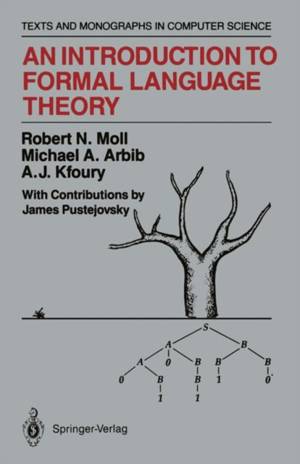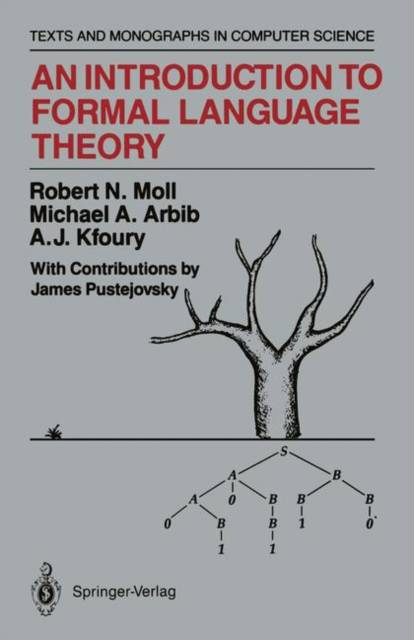
Je cadeautjes zeker op tijd in huis hebben voor de feestdagen? Kom langs in onze winkels en vind het perfecte geschenk!
- Afhalen na 1 uur in een winkel met voorraad
- Gratis thuislevering in België vanaf € 30
- Ruim aanbod met 7 miljoen producten
Je cadeautjes zeker op tijd in huis hebben voor de feestdagen? Kom langs in onze winkels en vind het perfecte geschenk!
- Afhalen na 1 uur in een winkel met voorraad
- Gratis thuislevering in België vanaf € 30
- Ruim aanbod met 7 miljoen producten
Zoeken
€ 97,95
+ 195 punten
Omschrijving
The study of formal languages and of related families of automata has long been at the core of theoretical computer science. Until recently, the main reasons for this centrality were connected with the specification and analy- sis of programming languages, which led naturally to the following ques- tions. How might a grammar be written for such a language? How could we check whether a text were or were not a well-formed program generated by that grammar? How could we parse a program to provide the structural analysis needed by a compiler? How could we check for ambiguity to en- sure that a program has a unique analysis to be passed to the computer? This focus on programming languages has now been broadened by the in- creasing concern of computer scientists with designing interfaces which allow humans to communicate with computers in a natural language, at least concerning problems in some well-delimited domain of discourse. The necessary work in computational linguistics draws on studies both within linguistics (the analysis of human languages) and within artificial intelligence. The present volume is the first textbook to combine the topics of formal language theory traditionally taught in the context of program- ming languages with an introduction to issues in computational linguistics. It is one of a series, The AKM Series in Theoretical Computer Science, designed to make key mathematical developments in computer science readily accessible to undergraduate and beginning graduate students.
Specificaties
Betrokkenen
- Auteur(s):
- Uitgeverij:
Inhoud
- Aantal bladzijden:
- 203
- Taal:
- Engels
- Reeks:
Eigenschappen
- Productcode (EAN):
- 9781461395973
- Verschijningsdatum:
- 2/03/2012
- Uitvoering:
- Paperback
- Formaat:
- Trade paperback (VS)
- Afmetingen:
- 156 mm x 234 mm
- Gewicht:
- 308 g

Alleen bij Standaard Boekhandel
+ 195 punten op je klantenkaart van Standaard Boekhandel
Beoordelingen
We publiceren alleen reviews die voldoen aan de voorwaarden voor reviews. Bekijk onze voorwaarden voor reviews.









